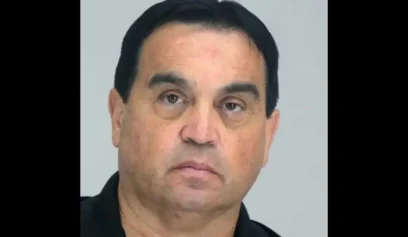It was a race against the clock for an elderly Michigan woman serving a life sentence while she battled Stage 4 lung cancer.
Theresa Dunlap, 67, wanted her to live out her final days surrounded by loved ones, but her supporters claim the prison’s inaction caused her to die alone in her cell.
“We fought hard to get her released,” Machelle Pearson said.
Pearson spent 34 years in prison alongside Dunlap until she was paroled. She is among several supporters of Dunlap who hoped she would have received a medical release from prison after her diagnosis.
“The prison system wouldn’t release her medical file. They stated the doctors never sent a letter to the governor, and a letter was sent,” Pearson said.
The Michigan Department of Corrections denies those allegations. A spokesperson for MDOC told Atlanta Black Star Dunlap was “on full vigil status at the time of her passing.”
MDOC also said “the parole board didn’t have to request [Dunlap’s medical file] because it already had it and “the report was shared with the governor’s office along with the board’s recommendations.”
“Her health is quickly deteriorating,” Dunlap’s supporters said in a letter to Gov. Gretchen Whitmer last June.
In December, Dunlap discovered her lung cancer had progressed to Stage 4, according to a letter of support from a coalition of prisoner and civil rights advocates, lawmakers and current and former inmates, the Detroit Free Press reported. They also claimed Dunlap had COVID-19 and that “mold grew in her chemo port.”
The cancer had “spread to her brain and spine, and a large mass was recently discovered in her chest and back,” Dunlap’s supporters said.
“My mother has been in there for 46 years,” Dunlap’s son, Marsay Dunlap, told the Detroit Free Press.
With Dunlap’s deteriorating health, she petitioned the Michigan parole board for an early release when she was eligible to apply. Most parole decisions are made by three-member panels. Decisions made regarding prisoners serving a life sentence need a majority vote.
“On July 1, the parole board denied Dunlap’s request for a medical commutation,” citing her 1976 murder conviction, the Free Press reported.
Dunlap wound up in prison after a 1976 murder that left a woman dead and another female victim stabbed and injected with drugs.
On March 22, 1976, court documents say, Dunlap’s co-defendant, Essie Henderson, and the one victim went to Dunlap’s house. That victim was then “stabbed with a pair of scissors,” part of her ear bitten off, and she was hit on the head with a wine bottle by Henderson.
The woman was then wrestled to the ground and tied up bound by wires at the hands and feet by Leotha Williams. Leotha Williams also reportedly beat her with a belt while she was subdued. Dunlap “injected heroin and bleach” into her body six times. The victim was then thrown into the trunk of a car and driven to the banks of the Detroit River.
While at the river, the victim was “shot twice…once in the neck and once in the arm” by Dunlap’s other co-defendant, Harold Williams.
The woman survived the vicious onslaught and was taken by police to the hospital where she recovered from her injuries.
“Two days later … Leotha Williams wound up dead,” the Detroit Free Press reported of the trial. “Witnesses said Dunlap followed her into a bathroom and shot her nine times [because] she was afraid [Leotha Williams] might talk,” the report added.
“I really couldn’t feel anything because of the dope,” the surviving victim would later testify. The victim also said during the trial that she heard someone say, “she’s not dead yet,” the Detroit Free Press reported.
During the trial testimony, the victim claimed the attack she experienced “was payback for a previous attack on Dunlap, who had been tortured for three hours when she was 18 and believed the woman in her home had set her up for that assault,” the Detroit Free Press reported.
Dunlap was convicted of first-degree murder after a jury trial in 1976. She was also convicted of assault with the intent to commit murder. She was sentenced to life in prison for murder and 50 to 80 years for the assault.
Prior to the murder, Dunlap had a child when she was 18 years old and was dealing with drug addiction. Her supporters claimed since spending 46 years in prison she had reformed herself and she helped mentor other women within the Women’s Huron Valley facility.
“She was like a mom,” Pearson said.

Whitmer could have granted Dunlap clemency because as governor she has the power to grant reprieves, commutations and pardons after convictions for all offenses. However, Whitmer did not respond to Dunlap’s supporters’ requests to step in before her death.
Whitmer’s Press Secretary said in a statement to the Free Press, “Governor Whitmer has followed the parole board’s recommendation in each of the commutations granted or denied to date.”
Whitmer granted 22 clemency requests on Dec. 23, including four pardons, the Free Press reported.
Dunlap was in a prison hospice since her diagnosis until she died on Jan. 9, 2023.
Dunlap’s family did not immediately return requests for comment regarding their next steps.
This story will be updated as it develops.


